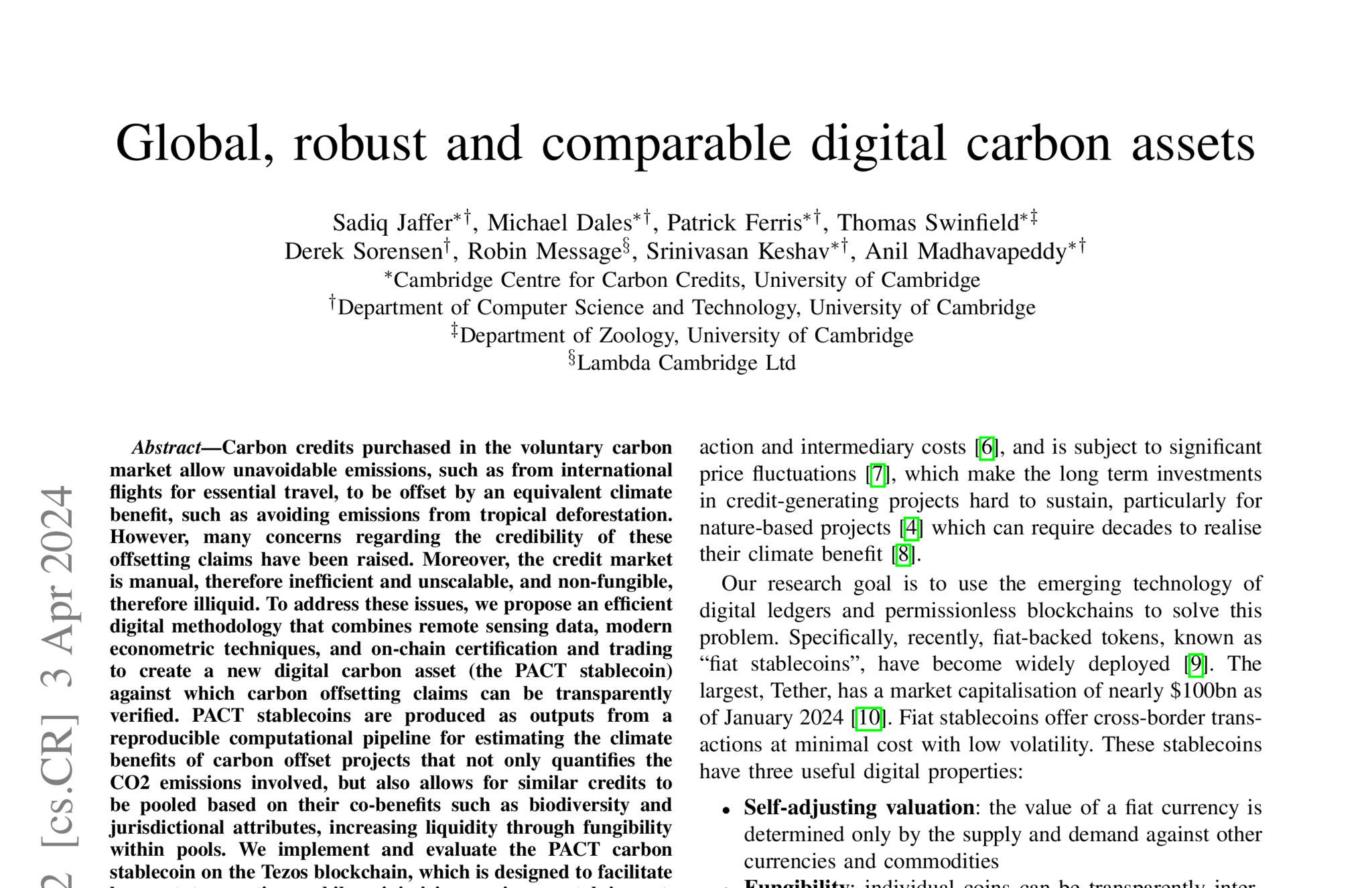Global, robust and comparable digital carbon assets
. In proceedings of the 6th IEEE International Conference on Blockchain and Cryptocurrency. .
Abstract
Carbon credits purchased in the voluntary carbon market allow unavoidable emissions, such as from international flights for essential travel, to be offset by an equivalent climate benefit, such as avoiding emissions from tropical deforestation. However, many concerns regarding the credibility of these offsetting claims have been raised. Moreover, the credit market is manual, therefore inefficient and unscalable, and non-fungible, therefore illiquid. To address these issues, we propose an efficient digital methodology that combines remote sensing data, modern econometric techniques, and on-chain certification and trading to create a new digital carbon asset (the PACT stablecoin) against which carbon offsetting claims can be transparently verified. PACT stablecoins are produced as outputs from a reproducible computational pipeline for estimating the climate benefits of carbon offset projects that not only quantifies the CO2 emissions involved, but also allows for similar credits to be pooled based on their co-benefits such as biodiversity and jurisdictional attributes, increasing liquidity through fungibility within pools. We implement and evaluate the PACT carbon stablecoin on the Tezos blockchain, which is designed to facilitate low-cost transactions while minimizing environmental impact. Our implementation includes a contract for a registry for tracking issuance, ownership, and retirement of credits, and a custodian contract to bridge on-chain and off-chain transactions. Our work brings scale and trust to the voluntary carbon market by providing a transparent, scalable, and efficient framework for high integrity carbon credit transactions.
